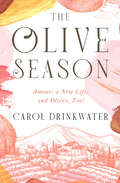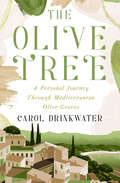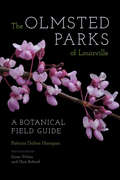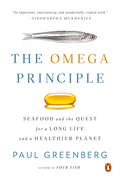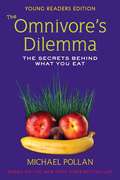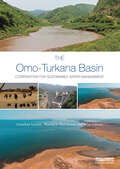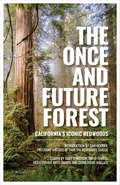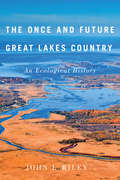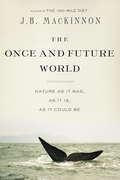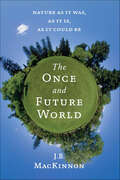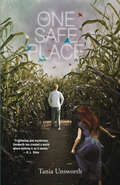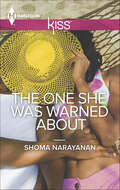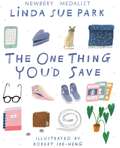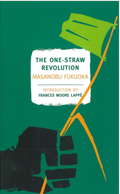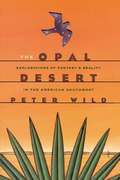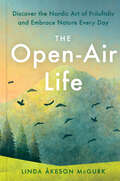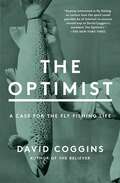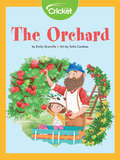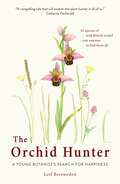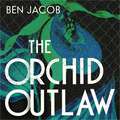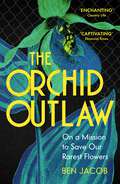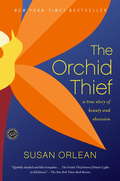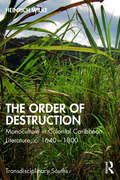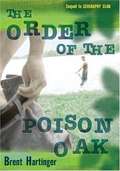- Table View
- List View
The Olive Season: Amour, a New Life, and Olives, Too! (The Olive Farm Series)
by Carol Drinkwater&“A lovely balance of memoir, travelogue and olive-growing how-to . . . Some of her adventures are quite funny.&” —Publishers Weekly In this memoir, the author of The Olive Farm returns to the ten-acre property for which she and her fiancé scraped together their savings to buy—just back from their wedding on a tiny Polynesian island, loaded down with luggage and a large hand-painted didgeridoo. As Carol and Michel settle in as husband and wife, they experience the glamor of southern France at dinner parties in the company of aristocrats and at the world-renowned Cannes film festival, as well as the dirt-caked, sun-baked life of farmers—especially after their gardener heads to Algiers to arrange his youngest son&’s wedding. For Carol, though, what matters most is that her longtime dream of motherhood finally promises to come true—and over the course of The Olive Season, she shares the story of her hopes and fears as she anticipates another kind of growth and nurturing. Alternately entertaining and emotionally poignant, this memoir is a rich portrait of love, longing, and the constant uncertainties of the cycle of life.
The Olive Tree: A Personal Journey Through Mediterranean Olive Groves (The Olive Farm Series)
by Carol DrinkwaterAn olive farmer journeys through Spain, Italy, and North Africa to find the future of agriculture in an age of chemicals and climate challenges. Carol Drinkwater&’s beloved olive farm in the South of France was suffering badly from destructive pests and premature ripening. In a hunt for answers, she decided to set out on her own for a fact-finding tour of Spain, Italy, Morocco, and Algeria. In The Olive Tree, Carol recounts not only the agricultural education she gained during her travels, but the dangers she faced as terrorist bombs rocked one of her destinations and a group of beekeepers helped shepherd her through dangerous territory. Through it all, she confronts issues faced by farmers and non-farmers alike in today&’s world, from climate change to diminishing water reserves to the excessive use of chemicals. Ultimately, she will return to her land in Provence with a new appreciation for the urgency of these problems—and with an ingenious vision for the future shared with her by a brilliant group of olive growers . . .Praise for the Olive Farm series &“Vibrant, intoxicating and heartwarming.&” —Sunday Express &“Spellbinding . . . a must for anyone who dreams of moving to a kinder climate and starting a new life.&” —Choice
The Olmsted Parks of Louisville: A Botanical Field Guide
by Patricia Dalton Haragan“A quality tribute to America’s greatest landscape architect, these parks he created, and especially the plants that thrive there.” —Plant Science BulletinFrederick Law Olmsted, popularly known as the “Father of American Landscape Architecture,” is famous for designing New York City’s Central Park, the US Capitol grounds, and the campuses of institutions such as Stanford University and the University of Chicago. His celebrated projects in Boston, Buffalo, Detroit, Milwaukee, and other cities led to a commission from the city of Louisville, Kentucky, in 1891. There, he partnered with community leaders to design a network of scenic parks, tree-lined parkways, elegant neighborhoods, and beautifully landscaped estate gardens that thousands of visitors still enjoy today.The Olmsted Parks of Louisville is the first authoritative manual on the 380 species of trees, herbaceous plants, shrubs, and vines populating the nearly 1,900 acres that comprise Cherokee, Seneca, Iroquois, Shawnee, and Chickasaw Parks. Designed for easy reference, this handy field guide includes detailed photos and maps as well as ecological and historical information about each park. Patricia Dalton Haragan also includes sections detailing the many species of invasive plants in the parks and discusses the native flora that they displaced.This guide provides a key to Olmsted’s vision, revealing how various plant species were arranged to emphasize the beauty and grandeur of nature. It’s an essential resource for students, nature enthusiasts, and visitors from near and far.
The Omega Principle: Seafood and the Quest for a Long Life and a Healthier Planet
by Paul GreenbergBy the bestselling author of Four Fish and American Catch, an eye-opening investigation of the history, science, and business behind omega-3 fatty acids, the "miracle compound" whose story is intertwined with human health and the future of our planetOmega-3 fatty acids have long been celebrated by doctors and dieticians as key to a healthy heart and a sharper brain. In the last few decades, that promise has been encapsulated in one of America's most popular dietary supplements. Omega-3s are today a multi-billion dollar business, and sales are still growing apace--even as recent medical studies caution that the promise of omega-3s may not be what it first appeared. But a closer look at the omega-3 sensation reveals something much deeper and more troubling. The miracle pill is only the latest product of the reduction industry, a vast, global endeavor that over the last century has boiled down trillions of pounds of marine life into animal feed, fertilizer, margarine, and dietary supplements. The creatures that are the victims of that industry seem insignificant to the untrained eye, but turn out to be essential to the survival of whales, penguins, and fish of all kinds, including many that we love to eat.Behind these tiny molecules is a big story: of the push-and-pull of science and business; of the fate of our oceans in a human-dominated age; of the explosion of land food at the expense of healthier and more sustainable seafood; of the human quest for health and long life at all costs. James Beard Award-winning author Paul Greenberg probes the rich and surprising history of omega-3s--from the dawn of complex life, when these compounds were first formed; to human prehistory, when the discovery of seafood may have produced major cognitive leaps for our species; and on to the modern era, when omega-3s may point the way to a bold new direction for our food system. With wit and boundless curiosity, Greenberg brings us along on his travels--from Peru to Antarctica, from the Canary Islands to the Amalfi Coast--to reveal firsthand the practice and repercussions of our unbalanced way of eating.Rigorously reported and winningly told, The Omega Principle is a powerful argument for a more deliberate and forward-thinking relationship to the food we eat and the oceans that sustain us.
The Omnivore's Dilemma: The Secrets Behind What You Eat (Young Readers Edition)
by Michael PollanThe New York Times bestseller that's changing America's diet is now perfect for younger readers. "What's for dinner?" seemed like a simple question--until journalist and supermarket detective Michael Pollan delved behind the scenes. From fast food and big organic to small farms and old-fashioned hunting and gathering, this young readers' adaptation of Pollan's famous food-chain exploration encourages kids to consider the personal and global health implications of their food choices. In a smart, compelling format with updated facts, plenty of photos, graphs, and visuals, as well as a new afterword and backmatter, The Omnivore's Dilemma serves up a bold message to the generation that needs it most: It's time to take charge of our national eating habits--and it starts with you.
The Omo-Turkana Basin: Cooperation for Sustainable Water Management (Earthscan Series on Major River Basins of the World)
by Jonathan LautzeThis book provides a comprehensive examination of water resource management in the Omo-Turkana Basin, linking together biophysical, socioeconomic, policy, institutional and governance issues in a solutions-oriented manner. The Omo-Turkana Basin is one of the most important lake basins in Africa, and despite the likely transboundary impacts associated with the management of dams, it is the largest lake basin in Africa without a cooperative water agreement. This volume provides a foundation for integrated decision-making in the management of development in the Lake Turkana Basin. Chapters cover water-related conditions, hydropower, agriculture, ecosystems, resilience and transboundary governance. The final chapter proposes ways forward in light of the potential benefits that can be achieved through cooperation, and practical realities that cooperation is slow and may take time to achieve. This book will be of great interest to students and scholars of water and natural resource management, environmental policy, sustainable development and African studies. It will also be relevant to water management professionals.
The Once and Future Forest: California's Iconic Redwoods
by Save the Redwoods LeagueOriginally published in celebration of Save the Redwoods League’s 100th anniversary, and here newly adapted for a trade audience, The Once and Future Forest explores the grandeur of the redwood ecosystems that sustain California and the deep love they have engendered in scientists, writers, artists, and the general public. At the heart of this celebration are five expansive essays by Gary Ferguson, David Harris, Meg Lowman, Greg Sarris, and David Rains Wallace. These pieces discuss a multitude of topics, including the fascinating science of redwoods, the League’s history of redwoods conservation, and the big trees’ significance to Indigenous cultures; but what unites the essays aside from their theme is awe. Readers will be inspired to protect these majestic beings and to look for a more ecologically informed future.
The Once and Future Great Lakes Country: An Ecological History (McGill-Queen's Rural, Wildland, and Resource Studies #2)
by John L. RileyNorth America's Great Lakes country has experienced centuries of upheaval. Its landscapes are utterly changed from what they were five hundred years ago. The region's superabundant fish and wildlife and its magnificent forests and prairies astonished European newcomers who called it an earthly paradise but then ushered in an era of disease, warfare, resource depletion, and land development that transformed it forever. The Once and Future Great Lakes Country is a history of environmental change in the Great Lakes region, looking as far back as the last ice age, and also reflecting on modern trajectories of change, many of them positive. John Riley chronicles how the region serves as a continental crossroads, one that experienced massive declines in its wildlife and native plants in the centuries after European contact, and has begun to see increased nature protection and re-wilding in recent decades. Yet climate change, globalization, invasive species, and urban sprawl are today exerting new pressures on the region’s ecology. Covering a vast geography encompassing two Canadian provinces and nine American states, The Once and Future Great Lakes Country provides both a detailed ecological history and a broad panorama of this vast region. It blends the voices of early visitors with the hopes of citizens now.
The Once and Future World
by J. B. MacKinnonFrom one of Canada's most exciting writers and ecological thinkers, a book that will change the way we see nature and show that in restoring the living world, we are also restoring ourselves. The Once and Future World began in the moment J.B. MacKinnon realized the grassland he grew up on was not the pristine wilderness he had always believed it to be. Instead, his home prairie was the outcome of a long history of transformation, from the disappearance of the grizzly bear to the introduction of cattle. What remains today is an illusion of the wild--an illusion that has in many ways created our world. In 3 beautifully drawn parts, MacKinnon revisits a globe exuberant with life, where lions roam North America and 20 times more whales swim in the sea. He traces how humans destroyed that reality, out of rapaciousness, yes, but also through a great forgetting. Finally, he calls for an "age of restoration," not only to revisit that richer and more awe-filled world, but to reconnect with our truest human nature. MacKinnon never fails to remind us that nature is a menagerie of marvels. Here are fish that pass down the wisdom of elders, landscapes still shaped by "ecological ghosts," a tortoise that is slowly remaking prehistory. "It remains a beautiful world," MacKinnon writes, "and it is its beauty, not its emptiness, that should inspire us to seek more nature in our lives."
The Once and Future World: Nature as It Was, as It Is, as It Could Be
by J.B. MacKinnonAn award-winning ecology writer goes looking for the wilderness we&’ve forgottenMany people believe that only an ecological catastrophe will change humanity&’s troubled relationship with the natural world. In fact, as J.B. MacKinnon argues in this unorthodox look at the disappearing wilderness, we are living in the midst of a disaster thousands of years in the making—and we hardly notice it. We have forgotten what nature can be and adapted to a diminished world of our own making.In The Once and Future World, MacKinnon invites us to remember nature as it was, to reconnect to nature in a meaningful way, and to remake a wilder world everywhere. He goes looking for landscapes untouched by human hands. He revisits a globe exuberant with life, where lions roam North America and ten times more whales swim in the sea. He shows us that the vestiges of lost nature surround us every day: buy an avocado at the grocery store and you have a seed designed to pass through the digestive tracts of huge animals that have been driven extinct.The Once and Future World is a call for an &“age of rewilding,&” from planting milkweed for butterflies in our own backyards to restoring animal migration routes that span entire continents. We choose the natural world that we live in—a choice that also decides the kind of people we are.
The One Safe Place
by Tania Unsworth“What is this place?” In a drought-stricken world, Devin and his grandfather have barely scraped out a living on their isolated farm. When his grandfather dies, Devin knows he can’t manage alone and heads for the nearest city to find help. But in the city he finds only children alone like him, living on the streets. Then a small act of kindness earns Devin an invitation to the Gabriel H. Penn Home for Childhood—a place with unlimited food and toys and the hope of finding a new home. But Devin soon finds out that the Gabriel Penn Home is no paradise. A zombie-like sickness afflicts many of the children who live there—and it will claim Devin, too, unless he can become the first to find a way out of this dystopian nightmare. “[A] chilling and engrossing tale . . . A standout.” —Kirkus Reviews, starred review “Fast-paced and gripping. An original dystopian story.” —School Library Journal, starred review “A timeless story that deserves to become a children’s classic for decades to come.” —The Christian Science MonitorA Summer 2014 Kids’ Indie Next List Pick One of the Christian Science Monitor’s 25 Best New Middle Grade Novels of 2014
The One She Was Warned About
by Shoma NarayananThere's no such thing as a reformed rebel! Shweta thought she would have the whole marriage-and-kids thing sorted by now. But she couldn't be more wrong-her love life's a wasteland! So when she bumps into Nikhil, the bad boy from her past who still sets her pulse racing, she can't resist flirting with danger.... Nikhil might have gone from zero to hero since they last met-although it's hard to believe from all the gossip about him!-but soon Shweta's hooked on the excitement he injects into her life...and on his spine-tingling touch! Perhaps the rumors are true-Nikhil really is as dangerous as his reputation....
The One Thing You'd Save
by Linda Sue ParkIf your house were on fire, what one thing would you save? Newbery Medalist Linda Sue Park explores different answers to this provocative question in linked poems that capture the diverse voices of a middle school class. Illustrated with black-and-white art. <P><P>When a teacher asks her class what one thing they would save in an emergency, some students know the answer right away. Others come to their decisions more slowly. And some change their minds when they hear their classmates’ responses. A lively dialog ignites as the students discover unexpected facets of one another—and themselves. With her ear for authentic dialog and knowledge of tweens’ priorities and emotions, Linda Sue Park brings the varied voices of an inclusive classroom to life through carefully honed, engaging, and instantly accessible verse.
The One-Straw Revolution: An Introduction to Natural Farming (New York Review Books Classics)
by Wendell Berry Frances Moore Lappe Larry Korn Masanobu FukuokaCall it "Zen and the Art of Farming" or a "Little Green Book," Masanobu Fukuoka's manifesto about farming, eating, and the limits of human knowledge presents a radical challenge to the global systems we rely on for our food. At the same time, it is a spiritual memoir of a man whose innovative system of cultivating the earth reflects a deep faith in the wholeness and balance of the natural world. As Wendell Berry writes in his preface, the book "is valuable to us because it is at once practical and philosophical. It is an inspiring, necessary book about agriculture because it is not just about agriculture." Trained as a scientist, Fukuoka rejected both modern agribusiness and centuries of agricultural practice, deciding instead that the best forms of cultivation mirror nature's own laws. Over the next three decades he perfected his so-called "do-nothing" technique: commonsense, sustainable practices that all but eliminate the use of pesticides, fertilizer, tillage, and perhaps most significantly, wasteful effort.Whether you're a guerrilla gardener or a kitchen gardener, dedicated to slow food or simply looking to live a healthier life, you will find something here--you may even be moved to start a revolution of your own.
The Opal Desert: Explorations of Fantasy and Reality in the American Southwest
by Peter WildThe opalescent deserts of the American Southwest have become romantic icons in the public imagination through the words of writers, the images of artists and photographers, and the visual storytelling of filmmakers. <P><P>In this spirited, personal, beautifully written book, Peter Wild explores the lives and works of sixteen writers whose words have shaped our visions of the opal desert. <P> Wild begins with Cabeza de Vaca, whose Relación of his desert wanderings sent treasure-hungry Spaniards searching for cities of gold. He goes on to discuss the works of both widely read and lesser-known nineteenth- and twentieth-century authors, including such luminaries as Mary Austin, Joseph Wood Krutch, Edward Abbey, Ann Zwinger, and Charles Bowden. He links all the writers as explorers of one kind or another, searching for tangible or intangible treasures, some finding and some losing their dreams in the opal desert.
The Open-Air Life: Discover the Nordic Art of Friluftsliv and Embrace Nature Every Day
by Linda Åkeson McgurkA complete guide to Friluftsliv, the Nordic secret to unplugging and connecting more deeply with nature.In The Open-Air Life, Swedish-American writer Linda McGurk introduces readers to a wide array of Nordic customs and practices that focus on slowing down and spending more and more of ones&’ time outdoors. An outdoorsy cousin of hygge, friluftsliv is what Nordic people do outside all day before they cozy up in front of the fireplace with their wool socks on and a cup of hot cocoa. From the pleasures of foraging for wild berries and birding to how to stay warm and cozy outside in the middle of winter, this charmingly illustrated, inspirational guide shows readers how to harness the power-of-nature to improve their physical and mental health, as well as their relationships with both other people and Mother Nature. Readers will learn: Why and how they should spend more time outsideHow to use friluftsliv to combat stress, anxiety disorders, depression, and burnoutPractical skills like making fire, cooking outdoors and cleaning water on the go. For country and city lovers alike, this book will serve as an essential guide to slowing down in this modern, fast paced society and connecting with the natural world.
The Optimist: A Case for the Fly Fishing Life
by David CogginsAn &“excellent&” (The New York Times) modern tribute to an ageless pastime, and a practical guide to the art, philosophy, and rituals of fly fishing, by an expert, lifelong angler.In The Optimist, David Coggins makes a case for the skills and sensibility of an enduring sport and shares the secrets, frustrations, and triumphs of the great tradition of fly fishing, which has captivated anglers worldwide. Written in wry, wise, and keenly observed prose, each chapter focuses on a specific place, fish, and skill. Few individuals, for example, have the visual acuity required to catch the nearly invisible bonefish of the Bahamas flats. Or the patience to land the elusive Atlantic salmon, &“the fish of a thousand casts,&” in eastern Canada. Pursuing these challenges, Coggins, &“a confirmed obsessive,&” travels to one fishing paradise after another, including the great rivers of Patagonia, private chalk streams in England, remote ponds in Maine, and New York City&’s Jamaica Bay. In each setting, he chronicles his fortunes and misfortunes with honesty and humor while meditating on how fishing teaches focus, inner stillness, and a connection to the natural world. Perfect for the novice, the enthusiastic amateur, and the devoted angler alike, The Optimist offers a practical path to enlightenment while providing &“a rueful, thoughtful, and very funny examination of an elegant obsession&” (Jay McInerney).
The Orchard
by Emily GranvilleAutumn is a fun season for making wonderful family memories. A girl and her grandpa visit a farm to pick apples, where they also see lots of pumpkins and enjoy nature.
The Orchid Hunter: A young botanist's search for happiness
by Leif BerswedenHe has just a few months to complete his quest – no one has ever done it before within one growing season – and it will require ingenuity, stamina and a large dose of luck.As he battles the vagaries of the British climate, feverishly chasing each emerging bloom, Leif Bersweden takes the reader on a remarkable botanical journey.This study of the 52 native species is a fantastic gateway into the compendious world of orchids – one that will open your eyes to the rare hidden delights to be found on our doorstep.Like Two Owls at Eton and My Family and Other Animals, The Orchid Hunter is a charming account of a precocious adolescent’s obsession with the natural world.Leif’s enthusiasm for his quest is infectious, as is the quiet conviction with which he keeps at it, showing how plant hunting can be the ultimate mindful activity.
The Orchid Hunter: A young botanist's search for happiness
by Leif BerswedenHe has just a few months to complete his quest – no one has ever done it before within one growing season – and it will require ingenuity, stamina and a large dose of luck.As he battles the vagaries of the British climate, feverishly chasing each emerging bloom, Leif Bersweden takes the reader on a remarkable botanical journey.This study of the 52 native species is a fantastic gateway into the compendious world of orchids – one that will open your eyes to the rare hidden delights to be found on our doorstep.Like Two Owls at Eton and My Family and Other Animals, The Orchid Hunter is a charming account of a precocious adolescent’s obsession with the natural world.Leif’s enthusiasm for his quest is infectious, as is the quiet conviction with which he keeps at it, showing how plant hunting can be the ultimate mindful activity.
The Orchid Outlaw: On a Mission to Save Britain's Rarest Flowers
by Ben JacobThe fascinating story of one man's mission to track down and rescue rare orchids from destruction on the building sites of Britain.Ben Jacob is an orchid thief. He spends his life (and risks prison) tracking down rare orchids and rescuing them from unwitting destruction on the building sites and greenbelt developments of Britain. This is his story.Ben fell in love with orchids as a nine-year-old, when his parents bought him a Cymbidium. That love then led him to spend his twenties in various tropical cities, teaching English and exploring jungles where exotic orchid species grew wild, pollinated by hummingbirds, huge moths and more. After a decade abroad, Ben returned to the UK. Here, his passion re-ignited when he encountered a colony of Bee orchids, a cryptic species which tricks bees into mating with its flowers. Ben was entranced. Having long seen Britain's orchids as pale imitations of their tropical cousins, he changed his mind completely and set out to find and photograph all fifty-one British species.Reading and learning everything he could, Ben realised that Britain's orchids are in desperate trouble. Some, such as Summer's Lady Tresses, have gone extinct; others, such as the magnificently strange Ghost Orchid, have not been seen since 2009; all have experienced vertiginous declines. Changes in land use and climate are responsible, but so too are Britain's outdated environmental and planning laws, which seem incapable of protecting rare species in the face of the drive to build new homes and infrastructure.That's how Ben turned outlaw. He began saving orchids slated for destruction, digging them out in the middle of the night and replanting them in safe places, all this while knowing that the work he was doing was illegal, for if arrested Ben could have been fined £5,000 for each wild orchid plant he saved, and he might even have faced prison.Part memoir, part fascinating history of our most exotic and yet overlooked flower, this is nature writing with a real story. Ben shares with us his mission, and raises urgent questions about our environmental legislation.The world needs more Bens.(P) 2023 Hodder & Stoughton Limited
The Orchid Outlaw: On a Mission to Save Britain's Rarest Flowers
by Ben JacobTEN YEARS AGO, BEN JACOB TURNED OUTLAW TO SAVE OUR RAREST FLOWERS. THIS IS HIS STORY.Obsessed by orchids since childhood, Ben spent years travelling to far-flung jungles to see them in the wild. Then a chance encounter set him off on a journey of discovery into the wonderful, but often forgotten, world of Britain's fifty-one native species. These include the Bee which looks (and smells) so much like one that even bees are fooled, the Ghost which exists without sunlight, and Autumn Lady's Tresses which gave Darwin the proof he needed for his theory of evolution.But our orchids are in desperate trouble. Many species are facing extinction. Decimated by changes in land use and climate, inadequately protected by environmental and planning laws, their habitats are disappearing fast. Determined to act before it was too late, Ben broke into building sites in the dead of night to rescue threatened plants, and turned his kitchen into a laboratory, his fridge into storage for hundreds of baby orchids, and his back yard into a plantation. But doing all that put him on the wrong side of the law. . . At once a memoir, a natural history, and an inspiring call to action, reintroducing us to Britain's most endangered flowers, The Orchid Outlaw shows us how we can all save the world, one plant at a time.
The Orchid Thief: A True Story of Beauty and Obsession
by Susan OrleanIn Susan Orlean's mesmerizing true story of beauty and obsession is John Laroche, a renegade plant dealer and sharply handsome guy, in spite of the fact that he is missing his front teeth and has the posture of al dente spaghetti. In 1994, Laroche and three Seminole Indians were arrested with rare orchids they had stolen from a wild swamp in south Florida that is filled with some of the world's most extraordinary plants and trees. Laroche had planned to clone the orchids and then sell them for a small fortune to impassioned collectors. After he was caught in the act, Laroche set off one of the oddest legal controversies in recent memory, which brought together environmentalists, Native Amer-ican activists, and devoted orchid collectors. The result is a tale that is strange, compelling, and hilarious. New Yorker writer Susan Orlean followed Laroche through swamps and into the eccentric world of Florida's orchid collectors, a subculture of aristocrats, fanatics, and smugglers whose obsession with plants is all-consuming. Along the way, Orlean learned the history of orchid collecting, discovered an odd pattern of plant crimes in Florida, and spent time with Laroche's partners, a tribe of Seminole Indians who are still at war with the United States. There is something fascinating or funny or truly bizarre on every page of The Orchid Thief: the story of how the head of a famous Seminole chief came to be displayed in the front window of a local pharmacy; or how seven hundred iguanas were smuggled into Florida; or the case of the only known extraterrestrial plant crime. Ultimately, however, Susan Orlean's book is about passion itself, and the amazing lengths to which people will go to gratify it. That passion is captured with singular vision in The Orchid Thief, a once-in-a-lifetime story by one of our most original journalists.
The Order of Destruction: Monoculture in Colonial Caribbean Literature, c. 1640-1800 (Transdisciplinary Souths)
by Heinrich WilkeThis book studies sugarcane monoculture, the dominant form of cultivation in the colonial Caribbean, in the later 1600s and 1700s up to the Haitian Revolution. Researching travel literature, plantation manuals, Georgic poetry, letters, and political proclamations, this book interprets texts by Richard Ligon, Henry Drax, James Grainger, Janet Schaw, and Toussaint Louverture.As the first extended investigation into its topic, this book reads colonial Caribbean monoculture as the conjunction of racial capitalism and agrarian capitalism in the tropics. Its eco-Marxist perspective highlights the dual exploitation of the soil and of enslaved agricultural producers under the plantation regime, thereby extending Marxist analysis to the early colonial Caribbean. By focusing on textual form (in literary and non-literary texts alike), this study discloses the bearing of monoculture on contemporary writers’ thoughts. In the process, it emphasizes the significance of a literary tradition that, despite its ideological importance, is frequently neglected in (postcolonial) literary studies and the environmental humanities.Located at a crossroads of disciplines and perspectives, this study will be of interest to literary/cultural critics and historians working in the early Americas and in Atlantic studies, to students and scholars of agriculture, colonialism, and (racial) capitalism, to Marxists and postcolonial critics, and to those working in the environmental humanities and in Global South studies.
The Order of the Poison Oak
by Brent HartingerSummer camp is different from high school. Something about spending the night. Things happen. Geography Club's Russel Middlebrook is back, and he and his friends are off to work as counselors at a summer camp. Brent Hartinger's third novel is the story of Indian legends, skinny-dipping in moonlit coves, and passionate summer romance. It's also the story of Russel's latest club, the "Order of the Poison Oak", a secret society dedicated to helping its members see life's hidden beauty and accept its sometimes painful sting.
